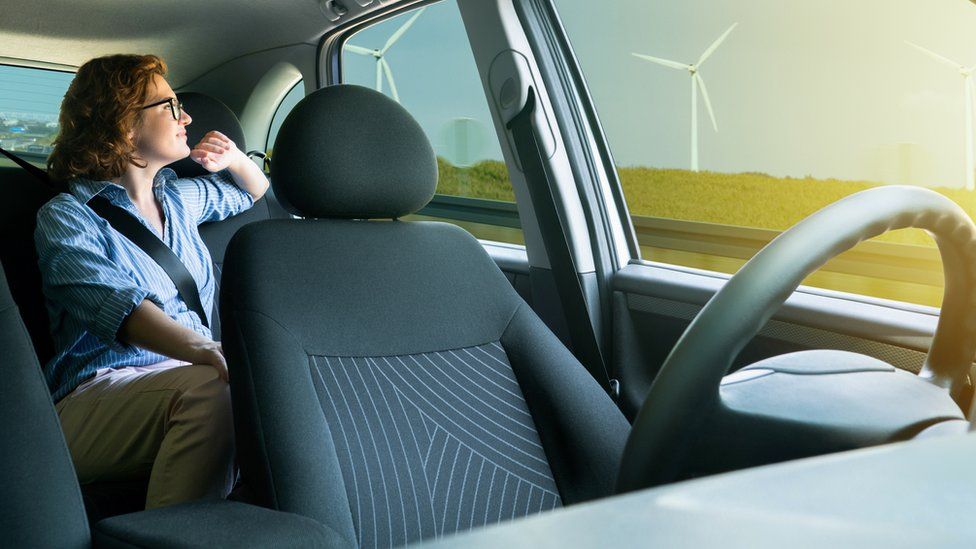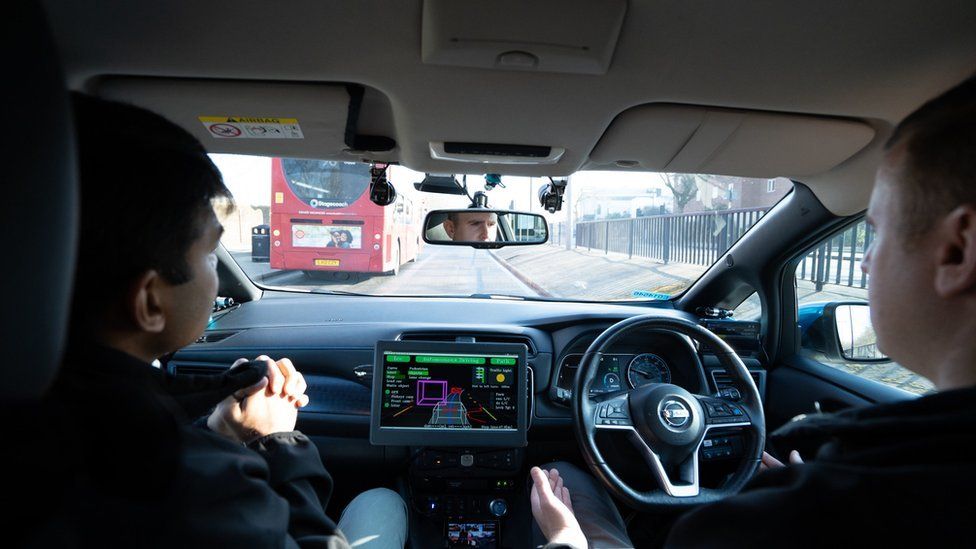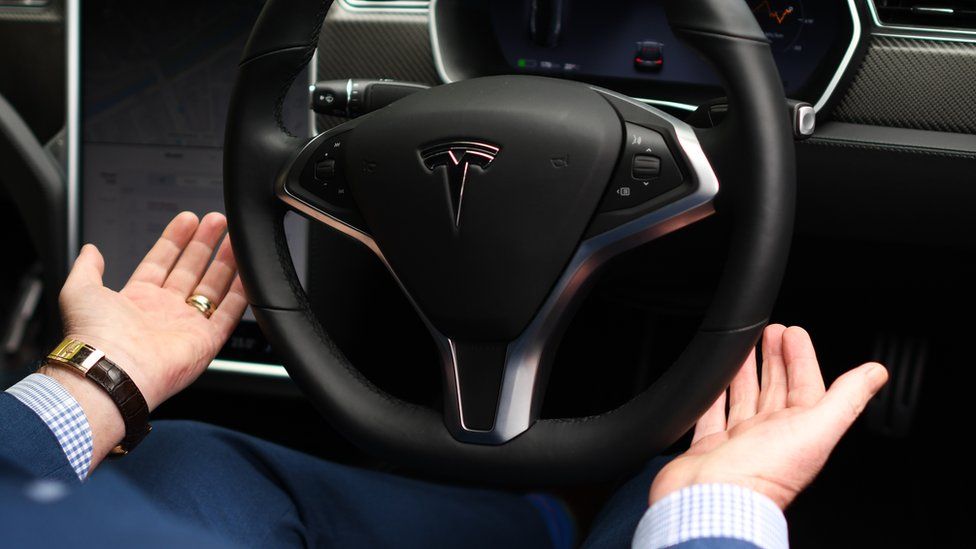Remote driving in UK from abroad should not be allowed, says Law Commission

Remotely driving a vehicle in the UK while outside the country should not be allowed, according to an independent body that advises the UK government.
The Law Commission report into remotely driven vehicles says at present they are a “legal grey area”.
Vehicles which are controlled by an outside driver are already used in warehouses, mines and farms, but car rental firms would like to use them.
The technology could also support autonomous vehicles.
The commission – which reviews legislation in England and Wales – says there is no specific legal requirement for the driver to be inside the vehicle they are operating.
It is neither “prohibited nor expressly allowed”, its report said.
But there is considerable interest in using remote driver technology, for example to deliver rental cars, where it could reduce the time and expense of a delivery driver’s return journey.
The report noted that two companies were already testing remote drive technology in the UK to bring vehicles to customers.
At present there is a safety driver inside the vehicle while it is remotely operated, but both firms said they hoped that would no longer be necessary by the end of the year.
Remote driving could also be used to support automated vehicles. For example if a self-driving car encountered a situation with which it was unable to cope, then a remote safety driver could take over.
Cyber-attack fear
The report noted safety concerns about certain risks with remote driving, including:
- a loss of connection between the vehicle and remote driver
- remote drivers may have less “situational” awareness than someone in the vehicle
- a remote driver may feel more detached, as if they are in a video game.
- the threat of cyber-attacks and concerns that hacked vehicles could be used in terrorism.
- the lack of a driver able to deal with incidents. For example, a remote driver cannot offer first aid after an accident
And there were potential legal challenges.
Some developers of remotely operated vehicles had suggested that they might base operation centres in a variety of European countries, including Estonia and Belarus.
But the report argued that placing drivers overseas could make prosecution for criminal offences difficult.
“If the vehicle is driven in a way associated with drunk-driving for example, it would not be possible to identify the driver and administer a breathalyser test sufficiently quickly before the driver sobers up,” it said.
Consequently the report found that “difficulties in enforcement” meant remote driving from overseas should be banned until “appropriate international agreements” were in place.
It also concluded that a remote driver should be held responsible for their actions just as someone sitting behind the wheel would be, but that organisations should be liable for technical faults beyond the driver’s control.
And it said companies using remote drivers to control vehicles beyond their line-of-sight should be required to have one of two new licences.
The Law Commission’s Nicholas Paines KC said: “Remote driving is an exciting technology, but before we see remotely operated cars on UK roads, we must address safety concerns through strong regulation.”
Transport minister Jesse Norman said that the government would carefully consider the Law Commission’s recommendations.



